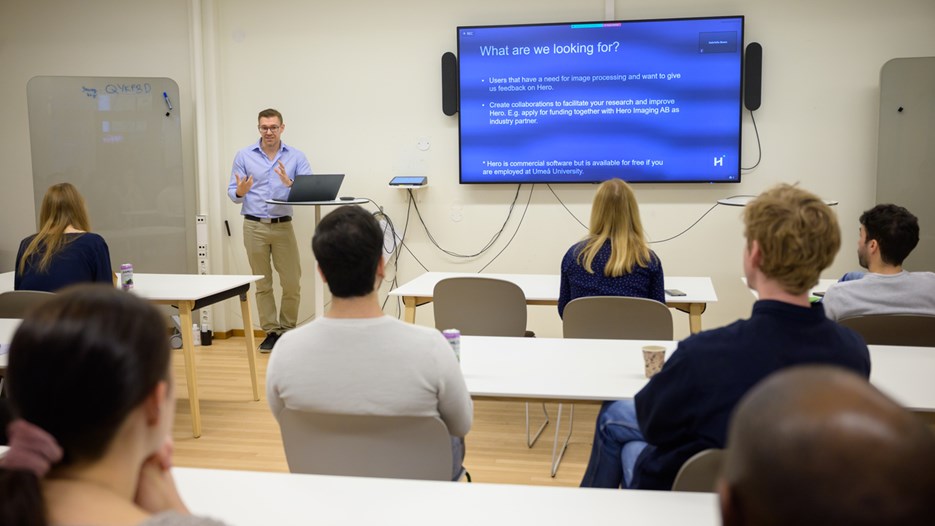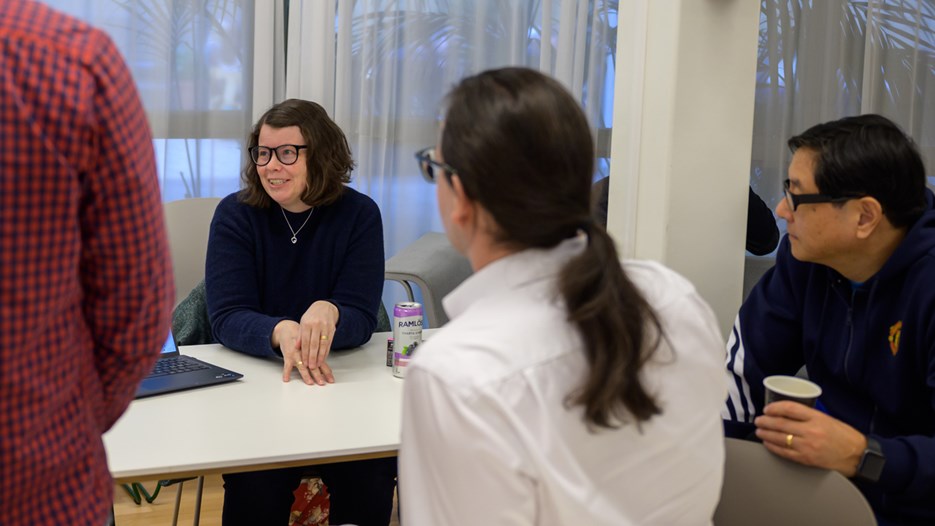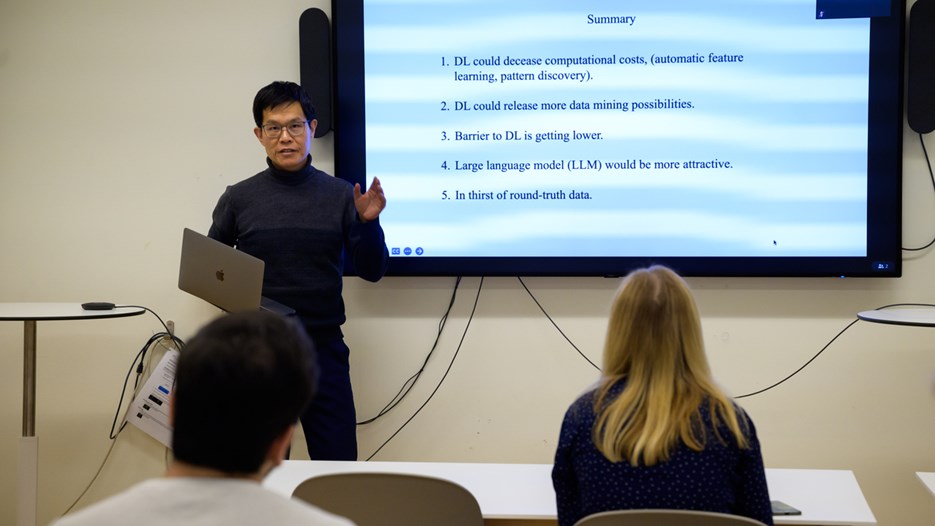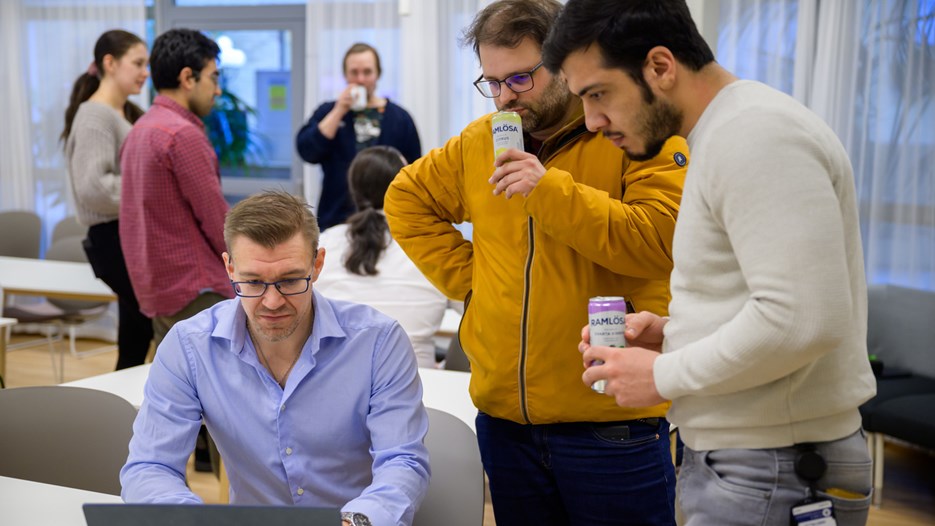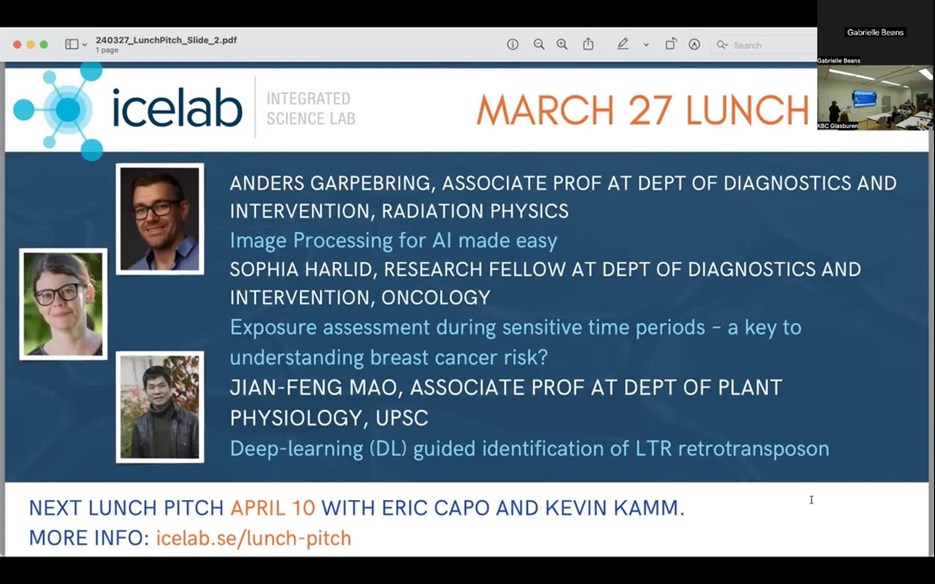About the Lunch Pitches
The Integrated Science Lab (IceLab) organizes the interdisciplinary research Lunch Pitch series with the goal of helping researchers at the university connect with each other across disciplines, with the goal of launching new collaborations. This spring IceLab will hold eight Lunch Pitches, every two weeks on a Wednesday from February 14th through May 22nd. Thanks to funding support from KBC, the lunch is included and free to participants.


